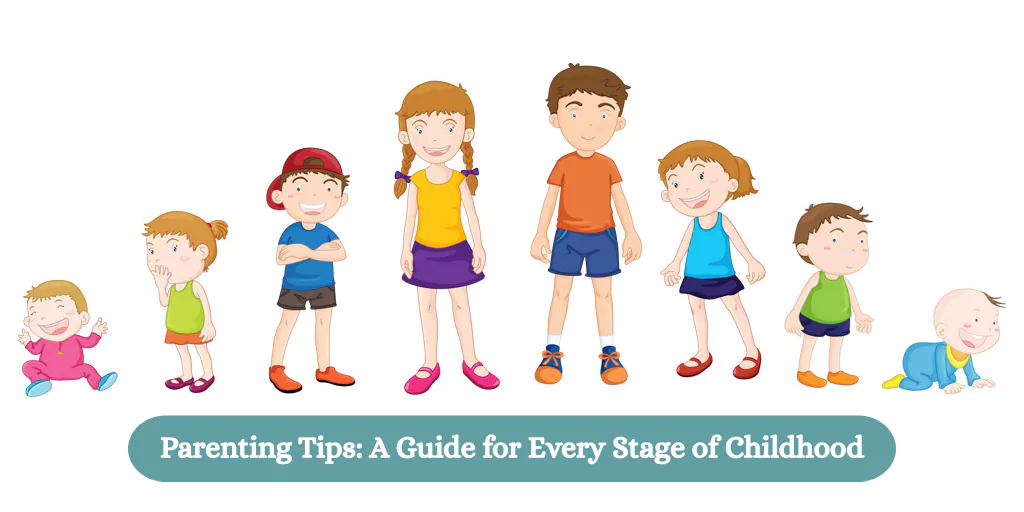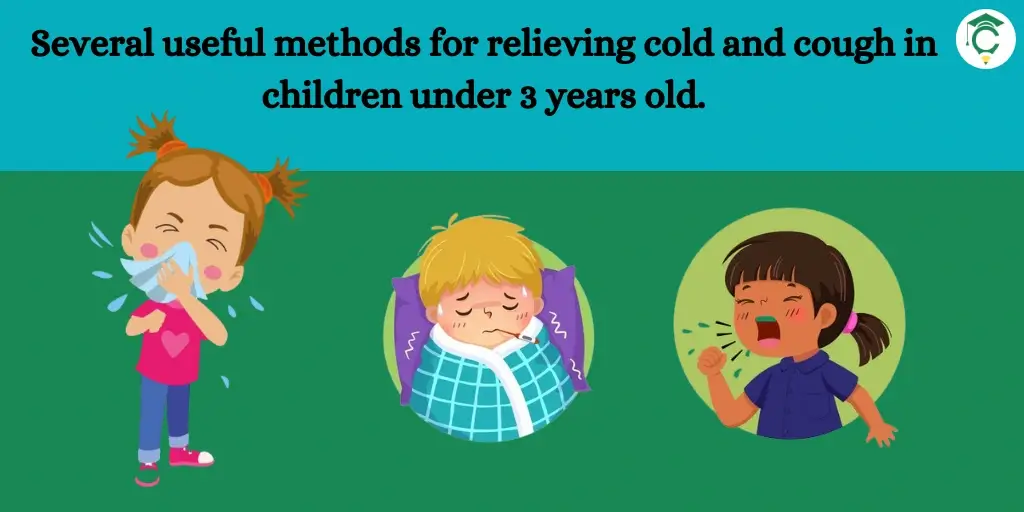One of the most fulfilling—and difficult—journeys in life is becoming a parent. Children’s requirements change as they get older, and our parenting style should adapt as well. Knowing your child’s emotional and developmental needs is crucial, regardless of whether you’re parenting a toddler, a teenager, or your first child. We’ll go over easy and practical parenting tips in this guide that are appropriate for each stage of your child’s development.
1. Parenting Tips for Preschoolers

The preschool years (ages 3–5) are filled with curiosity, rapid development, and emotional discovery. During this stage, children begin to explore their independence while needing a secure base to return to.
Tips:
- Establish Routines: A regular schedule helps children feel safe and understand what to expect each day.
- Use Positive Reinforcement: Praise their good behaviour—“You did a great job cleaning up!” works better than scolding.
- Let Them Explore Safely: Supervise play but allow room for creativity and independence.
- Teach Through Play: Use games, stories, and songs to teach values, language, and motor skills.
- Manage Tantrums Calmly: Stay patient. Help them label emotions: “I see you’re upset. Let’s take a deep breath together.”
2. Teenage Parenting Tips

The teenage years can be intense for both parents and kids. Teens crave independence but still need guidance. Your role shifts from manager to mentor.
Tips:
- Keep Open Communication: Make time to listen without interrupting or judging.
- Respect Their Privacy: Allow them space to grow while keeping gentle boundaries in place.
- Set Clear Expectations: Be consistent with rules and consequences, but involve them in decision-making.
- Support Their Identity: Encourage their hobbies, style, and voice—even if it differs from yours.
- Talk About Mental Health: Make conversations about stress, emotions, and self-care normal.
3. Best Parenting Tips

These timeless tips apply to all ages and help you build a strong, lasting connection with your child.
Tips:
- Be Present, Not Perfect: Kids don’t need flawless parents—they need available ones.
- Model the Behaviour You Want: Be the example for honesty, kindness, a
- nd responsibility.
- Focus on Effort Over Results: Praise persistence and growth rather than perfection.
- Set Boundaries with Love: Discipline with understanding and consistency, not fear.
- Celebrate Individuality: Let your child know it’s okay to be different—and that you love them for who they are.
4. New Parenting Tips

New to parenting? The early days can feel overwhelming, but building confidence takes time. Start small, stay informed, and trust yourself.
Tips:
- Trust Your Instincts: You know your baby better than anyone. Don’t be afraid to follow your gut.
- Sleep When You Can: Prioritise rest—taking care of yourself helps you care for your child.
- Limit Information Overload: Too much advice can cause anxiety. Choose a few trusted sources.
- Ask for Help: Parenting is a team effort. Accept support from family, friends, or professionals.
- Savour the Small Moments: Every smile, cuddle, and giggle is a memory in the making.
5. Parenting Advice for Teenagers

Teenagers often test boundaries—but deep down, they still need love, structure, and encouragement. Your guidance now can shape their confidence for life.
Tips:
- Stay Calm During Conflicts: Keep your cool to keep communication open.
- Encourage Independence: Let them take on responsibilities like managing money or making schedules.
- Teach Problem-Solving: Don’t fix everything—ask, “What do you think you should do?”
- Talk About the Future: Discuss careers, goals, and decisions without pressuring them.
- Be Their Safe Space: Let them know they can come to you without fear of harsh judgment.
Conclusion
Every child is different, and every parenting journey is unique. What matters most is being consistent, loving, and open to learning along the way. These parenting tips can help you support your child’s growth—emotionally, mentally, and socially—while strengthening your bond with them at every stage.







production company
July 4, 2025need a video? rome production company offering full-cycle services: concept, scripting, filming, editing and post-production. Commercials, corporate videos, social media content and branded storytelling. Professional crew, modern equipment and a creative approach tailored to your goals.
faamru
July 4, 2025Продажа тяговых https://faamru.com аккумуляторных батарей для вилочных погрузчиков, ричтраков, электротележек и штабелеров. Решения для интенсивной складской работы: стабильная мощность, долгий ресурс, надёжная работа в сменном режиме, помощь с подбором АКБ по параметрам техники и оперативная поставка под задачу
ab-resurs
July 4, 2025Продажа тяговых https://ab-resurs.ru аккумуляторных батарей для вилочных погрузчиков и штабелеров. Надёжные решения для стабильной работы складской техники: большой выбор АКБ, профессиональный подбор по параметрам, консультации специалистов, гарантия и оперативная поставка для складов и производств по всей России
kraken
July 4, 2025Проверенный даркнет рынок на кракен маркет даркнет с рейтингами продавцов и детальной статистикой сделок
RobertDow
July 4, 2025Продажа тяговых ab-resurs.ru аккумуляторных батарей для вилочных погрузчиков и штабелеров. Надёжные решения для стабильной работы складской техники: большой выбор АКБ, профессиональный подбор по параметрам, консультации специалистов, гарантия и оперативная поставка для складов и производств по всей России
Stanleywiz
July 4, 2025Продажа тяговых faamru.com аккумуляторных батарей для вилочных погрузчиков, ричтраков, электротележек и штабелеров. Решения для интенсивной складской работы: стабильная мощность, долгий ресурс, надёжная работа в сменном режиме, помощь с подбором АКБ по параметрам техники и оперативная поставка под задачу